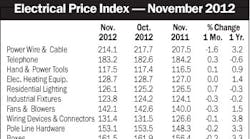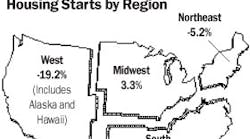Electrical equipment recyclers and surplus dealers are frequently lumped into discussions of the electrical industry “gray market” but they’d like to be seen in a different light — as key players in the industry’s green market, instead. The difficulties of changing the color of the industry’s perceptions were highlighted in discussions at the annual Electrical Safety and Reliability Conference, a gathering of members and affiliates of the Professional Electrical Apparatus Recyclers League (PEARL) in downtown Denver last month.
PEARL members have been campaigning since the organization’s inception 14 years ago to improve the industry’s understanding of the aftermarket and gain respect for the companies that serve the needs of distributors and end users with used, surplus, reconditioned, refurbished and remanufactured electrical equipment. PEARL has made progress, but the ultimate goal of gaining the open acceptance of electrical product manufacturers and distributors remains elusive.
Tom Grace, manager of anti-counterfeiting initiatives for Eaton Corp., Cleveland, engaged PEARL members in a lively back-and-forth discussion aimed at clarifying what is considered the gray market and what is not.
“We’ve been accused of talking out of both sides of our mouth, and I want you to understand where we’re coming from,” Grace told the audience. “Here’s where we stand: The gray market is bad. The market for reconditioning and recycling electrical products has a place.”
There may be more at stake than just respect and regard from a leading manufacturer. Grace said Eaton is evaluating how to handle transformer reconditioning in the future — whether it makes sense to invest in the capabilities to do reconditioning internally or to form a strategic alliance with companies that already provide reconditioning services.
The conference overall was up-beat. Dealers reported that the recession is still affecting business activity in the surplus market — there is plenty of material out there to buy, they said, but sales opportunities continue to lag.
Brian Corekin, president of Monster Fuses, Portland, Ore., and current president of PEARL, highlighted the organization’s progress toward raising the standards of surplus dealers, including a possible site inspection and training certification requirements that members will have to meet and keep current in order to keep their membership.
Corekin is promoting initiatives to emphasize PEARL members’ role as a provider of green services and their ability to supply hard-to-find products to distributors trying to keep their own inventories as lean as possible.
On the green side, PEARL brought in Nabil Nasr of the National Center for Remanufacturing and Recovery at Rochester Institute of Technology (RIT), Rochester, N.Y. Nasr discussed research on the growing impact of remanufacturing and development of standards.
The conference included a variety of technical sessions on topics ranging from refurbishing switchgear to the nuances of electroplating to PEARL’s new standards for reconditioning dry-type transformers.
Arc-flash mitigation was a key topic. Presentations covered options for retrofitting circuit breakers with fused solid-state trip units and robotic devices for remote racking and switching of distribution-class switchgear.
The group will gather next year in Portland, Ore.
—Doug Chandler

